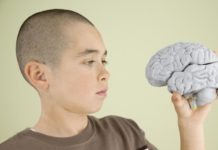Very Slow Taper Best for Antipsychotic Discontinuation
An article in JAMA Psychiatry advises very slow tapering for best results when discontinuing antipsychotic drugs.
Study Highlights Difficulty of Antipsychotic Withdrawal
New research finds insomnia, anxiety, and depression are common symptoms of antipsychotic withdrawal, highlighting difficulties of discontinuation.
The BBC, Harrow, and a Public Left in the Dark
The recent report by the BBC on medication-free treatment in Norway, when viewed in conjunction with the media silence on Martin Harrow's latest publication, reveals why the public remains misinformed about the long-term effects of antipsychotics.
Researchers Warn of “Brain Atrophy” in Children Prescribed Antipsychotics
Researchers discuss the evidence that antipsychotic medications may cause brain atrophy in children, whose brains are still developing.
Service Users Report Psychiatric Professionals as the Least Helpful Factor in Quitting Antipsychotics
A new study published in Psychology and Psychotherapy: Theory, Research and Practice finds that psychiatrists and other doctors are the most unhelpful factor for...
Antipsychotics Linked to Cognitive & Memory Impairments
Finnish reseachers report in Schizophrenia Research that antipsychotic use is associated with cognitive and memory impairments. The University of Oulu team studied forty people...
Safety Analysis Weighs Harms and Benefits of Antipsychotic Drugs
The researchers find that the drug effects for reducing psychosis are small and that treatment failure and severe side effects are common.
Despite Safety Risks, Prescribers Receive Little Guidance of Monitoring Antipsychotic Clozapine
A new review finds a lack of available guidance on how to effectively monitor adverse effects of antipsychotic drug clozapine.
Antipsychotics Associated with Severe COVID-19 and Fatal Outcomes
A new study has found a strong association between antipsychotic drugs and higher rates of severe cases of COVID-19.
Scientists Clarify Risks of Augmenting with Antipsychotic Medications for Depression
The researchers found that while antipsychotic drugs may be slightly more effective than alternative antidepressants, they come with a much higher side effect burden.
Study Finds Improved Functioning for ‘Schizophrenia’ Without Antipsychotics
Long-term treatment with antipsychotic drugs is currently considered the standard treatment for patients diagnosed with ‘schizophrenia.’ A new study challenges this practice, however. The...
Study Suggests Long-Term Antipsychotic Use May Result in Poorer Cognitive Functioning
Association found between long-term antipsychotic use and poorer performance on cognitive tasks in adults diagnosed with ‘schizophrenia.’
Discontinuation of Antipsychotics Improves Cognitive Functioning
A study, recently published in Psychological Medicine, examined the cognitive functioning of individuals with schizophrenia who discontinued antipsychotics, and those who maintained their antipsychotic...
Antipsychotics Often Prescribed Without Informed Consent
New research reveals that patients are often not given fully informed consent before being prescribed antipsychotics.
Abilify Can Worsen Psychosis & Aggression
In a systematic literature review, researchers from Canada and Japan found that the antipsychotic aripiprazole (Abilify) was significantly and causally related to increased increased...
Patients With Schizophrenia Show Better Work Functioning Off Antipsychotics
20-year follow-up study finds that after four years, patients not prescribed antipsychotics have significantly better work functioning.
Antipsychotics Worsen Cognitive Functioning in First-Episode Psychosis
Withholding antipsychotics may be beneficial for memory, the researchers write.
Exploding Myths About Schizophrenia: An Interview with Courtenay Harding
The Vermont Longitudinal Study, led by Courtenay Harding, belied conventional beliefs about schizophrenia by showing remarkably good outcomes for patients discharged in the 1950s and '60s.
Greater Exposure to Antipsychotics Associated with Worse Long-Term Outcomes
A new study finds adverse long-term consequences associated with the increased use of antipsychotics in first-episode psychosis.
Study Shows Clozapine Can Result in Serious Gastrointestinal Complications
A large observational study published in CNS Drugs sheds light on serious adverse effects of the ‘gold standard’ antipsychotic Clozapine.
Does Longer Duration of Untreated Psychosis Cause Worse Outcomes?
New research counters the long-held assumption that a longer duration of untreated psychosis is associated with worse outcomes.
A Guide to Minimal Use of Neuroleptics
This guide, by psychiatrists Volkmar Aderhold and Peter Stastny, provides a comprehensive review of antipsychotics and an evidence-based rationale for avoiding their use in first-episode psychosis, and for minimizing their long-term use.
Better Outcomes Off Medication for Those Recovered from First-Episode Schizophrenia
A new study has found that of 10 people who were fully recovered from their first episode of schizophrenia (FES), those not taking antipsychotics did better in terms of cognitive, social, and role functioning—and reached full recovery more quickly.
Review Questions Long Term Use of Antipsychotics
Patients who recover from a single episode of psychosis are often prescribed antipsychotics long-term, despite a lack of evidence for this practice
Patients Complain about Antipsychotic Medications Inducing “Zombie-like” State
People who take antipsychotic medications experience many side effects which have "major disruptive impact on their lives," according to research in the Journal of Mental Health Nursing.






























